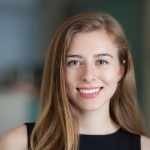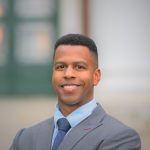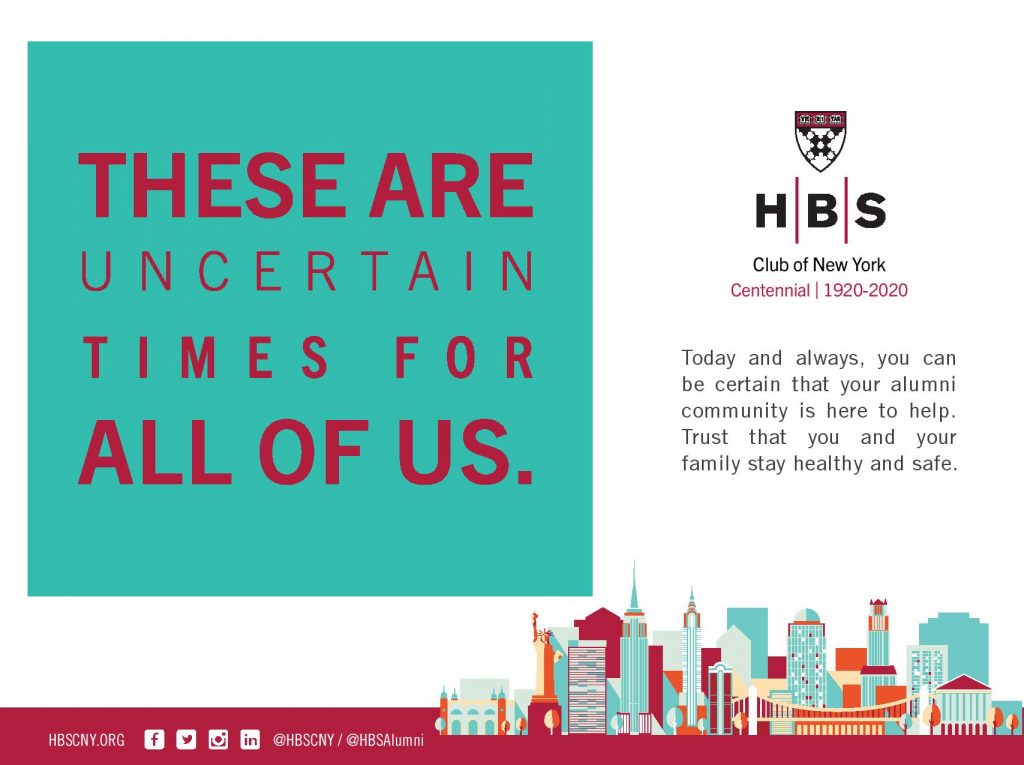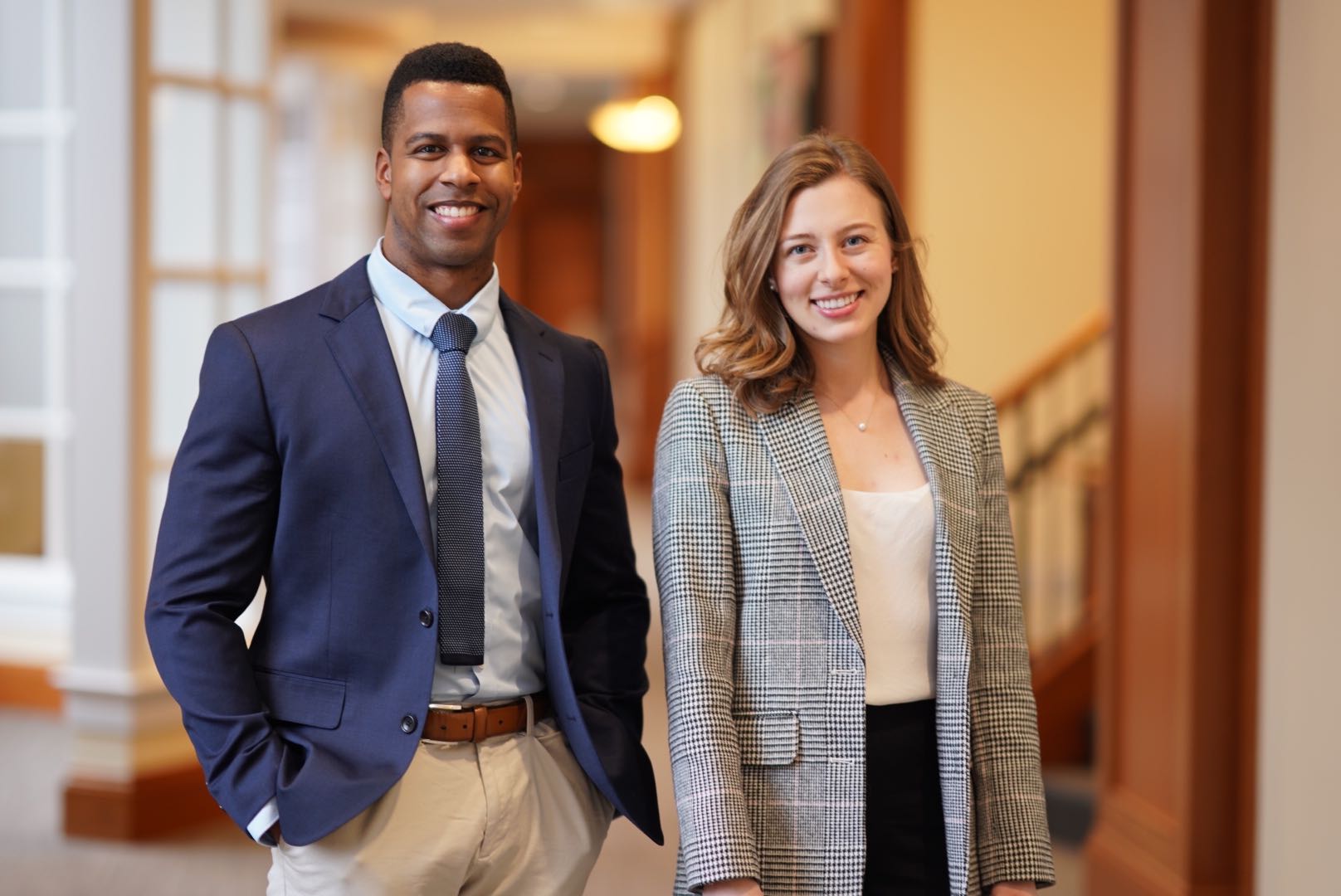

Annie Plachta (MBA ’21) and Caleb Bradford (MBA/MPP ’21) share their plans for the student body for next year.
Tell us a bit about yourselves.
Annie Plachta (MBA ’21): I’m originally from Northern Minnesota and went to Notre Dame, where I majored in finance and history. I worked in student government in my junior and senior years and absolutely loved it! We actually formed the student government for the business school, which was one of the highlights of my Notre Dame experience. After that, I worked in Chicago for four years in investment banking and private equity. I came here to HBS because I want to pivot my career. I really enjoy health & wellness and creating wonderful experiences for people, so that’s the general umbrella under which I’m looking for internships. We will see how that plays out after graduation, but I just want to do something that I can feel passionate about and see where that leads me.
Caleb Bradford (MBA/MPP ’21): I am originally from Sweet Home Alabama and I’m the son of a preacher man. So yeah, my whole life’s a song! I also come from a big family. My eight siblings are half siblings, four brothers and four sisters. My original dream as a kid was to be an astronaut, so I majored in aerospace and mechanical engineering in college.
College was also where I discovered a shift in my political ideology. I was raised as a staunch Republican. Growing up in the South, in an enclosed environment, did not expose me to many new ideas or individuals from different backgrounds and religions. So in college, it was a culture shock in many ways. The more conversations I had with roommates and friends at Princeton, the more cracks started forming in my convictions. Eventually, I metamorphosed from a conservative into a liberal. That was one of the first moments I realized how powerful ideology and government could be. That’s where the idea first came to me that a career in public service might be ideal for me and a better way to serve my community than just being an astronaut.
I spent the first half of last summer working as a Senior Dukakis Policy Advisor to the Governor in Arizona to get some experience in an administration for the first time. Prior to that, I had a kaleidoscopic career that spanned NASA, BlackRock, and a startup—so I had no real government experience. To help fill that gap, I tacked on a second political internship last summer. Following my stint in the Arizona’s Governor’s office, I flew to South Bend, Indiana to assist Mayor Pete in his presidential run and test out the campaign side of being in government.
Why did you decide to run for SA Co-Presidents?
Annie: I decided to run partially just because I had such a good experience doing student government at Notre Dame and also because I had a great experience as part of section leadership and wanted to continue that. But the biggest motivator for me happened at the end of last semester. Many of my friends and section mates were having a really tough time while I was having a great time. I realized that there were many people around me struggling with huge amounts of anxiety about classes, grades, jobs, and such. And so I thought to myself, “What could we be doing to make sure that everyone has the opportunity to have a really good experience and how can we soothe these anxieties that are so prevalent but not really talked about?”
Caleb: One of the reasons I decided to run for SA Co-president was due to a “quarter-life epiphany.” I originally had a wild ambition to have an illustrious career first in the private sector and then transition into the public sector. Then 2016 happened. After Trump was elected, I pivoted, accelerated my political goals timeline, and decided to just make public service my career. That’s why I applied to grad school for a joint degree, pursuing a Master’s in Public Policy in addition to the MBA. Personally, I also want to make good on a promise to my oldest brother which was to leave every place I go to in better state than how I found it.
I care about the people in this community. Similar to Annie, I had such a phenomenal time at HBS and I’m still having a great time, despite all the adjustments we are going through due to coronavirus. But that was not the experience everyone was having. Whether it was the social experience in their section or in the school more broadly, people were not feeling as though they truly belonged here. Additionally, everyone was not getting attention for their mental health struggles. Despite the professional resources that we have here, many people are still uncomfortable openly talking about their mental health challenges and so it just creates this unfortunate environment where people are going through their experience not feeling happy. If I can help bring them out of that funk and get them the best possible experience out of here, then I will tirelessly strive for that.
How did you decide to run together and what are your strengths?
Annie: Caleb and I were supposed to get a coffee since the very beginning of the semester. It was one of those things a lot of people here experience, where these meetings continuously get pushed back. Every time we hung out in a group, we would say, “Oh yeah, we should get a coffee!” and then it just never happened.
We finally did it on the day of the first meeting for the people who potentially wanted to run for SA Co-Presidents. Through the conversation, we realized that many of our friends were talking about the same thing— the anxieties, the questioning, and whether they’re doing the right things with their lives. At the same time, we found out that we were both interested in running for the role and we decided to go to the meeting together. This kicked us off. We share a really similar idea of what people are having problems with, and we realized our focus areas were very similar. Caleb and I are also extremely complimentary. Caleb is the visionary, “build-the-trains” guy, and I make the trains run on time.
This played out well throughout our campaign and even now in these very busy first few weeks. Particularly, Caleb’s greatest strength is how he is so plugged into this community. He cares so deeply about everyone, whether it is within our section, outside of the section, within the joint degree students, or within different affinity groups and clubs. People come to him with everything that they are worried about. This is great because it gets us really close to the community, and we are able to address some of those issues. He is so good at building strong relationships all across the campus. He also has the most wonderfully positive attitude, all the time! He has absolutely been a rock for me. It is very hard not to be distressed at everything that has been going on. But he is always there with a smile, not only for me and the rest of our team, but for the whole student body. He is there, saying “Everything’s gonna be okay, we are going to find a way through this.” I think that is really hard to do and I massively appreciate him for it.
Caleb: I actually did not expect our coffee to morph into the session on running for Co-president but I’m glad it went that direction. Props to reciprocity ring coffee chats! Up until that point, I already had a few conversations with individuals who were contemplating the idea of running for Co-presidents. They were all fantastic. But our conversations definitely did not have that spark that I had when I was talking with Annie.
It was indeed a very fortuitous coffee chat and we walked into the SA meeting with matching Patagonia fleeces on the same day. In that meeting, we learned some of the details about what it would entail to run and what it would entail if it worked out and we were elected. It just seemed like an incredible opportunity that I couldn’t pass up. Annie was definitely critical in making that happen. If I had not found her, I’m not so certain I would have run for the position.
I do feel the same about Annie—she is my rock. She has this incredible way of keeping me grounded. Sometimes I run wild with these pie-in-the-sky thoughts and visions. She keeps me grounded and very real but she is also very supportive at the same time. Although she downplays how integrated she is in the community, she is that person with an eye for strategy, an eye for being plugged in and an eye for deploying people in order to get the best out of them. In terms of execution, she is really the star! Things get done, no matter what. Whether the sky is falling down, or the coronavirus is coming, I have full confidence that she will always be there for me and for the school. That’s such a relief and such a powerful thing to have in a partner. She is someone who helps me stay positive because I know no matter what happens, she’ll be there by my side and she will make sure that we get things done. There is no other person I would have embarked on this journey with, so I am super thankful to have her there.
What are your plans for the SA and HBS community next year?
Annie: It is changing every day, given how this semester has turned out. But to start with, we’re focused on the mental health and wellness aspect because that was integral to why we decided to run in the first place. We are already talking with SAS about how to make sure that mental health services are more available to students next year and going forward. We want to get to the bottom of why some of these anxieties or social fears exist for such a large part of the campus. Although we are not sure how all of that will take shape yet or what the perfect solution is, we are really excited to start figuring that out.
In our campaign we also talked about engagement and about better using the campus spaces, in order to get people to mix with each other. The importance of that has only become heightened in the last few weeks. We know that in EC year, it might be harder to mix because people tend to be not as close as they were in the RC year or people silo themselves with groups of friends they already know. So making sure there are big events for people to make new friends is increasingly important now that we are spending the rest of our RC year social distancing. We need to do more social un-distancing next year! We’re already looking into what that might be.
Caleb: Our initial ideas for the school were rooted in our three pillars of diversity & inclusion (D&I), engagement and wellness. Although they have now taken a new shape, they also have taken on a new importance for the community, largely due to coronavirus.
For wellness and mental health, it is critical for us to engage with the campus to normalize the discussion around this. First is to ensure that people who are suffering from any sort of mental health crisis, social fears or anxieties feel empowered to talk about it. They should feel they have receptive classmates and a receptive community to address these topics. The very tangible solution is to have available resources, so increasing funding to our wellness program, or perhaps creating our own mental health task force. The task force would curate data around this issue and identify gaps in our resourcing. We must find ways to do that as quickly as possible, so when we come back in the EC year, our institutions have momentum and are ready to hit the ground running.
On the engagement side, the better use of space was our original plan but this will have to shift into a different form. We need to be very creative. We need to mobilize leadership across all dimensions, from the SA, to the faculty and staff, to section leadership with presidents and social chairs, and everyone in the community. It’s going to be essential to strengthen the bonds that hold us together. If we are intentional about that, I think we will come through this pandemic stronger and more united. In the EC year, we want a more concerted effort to reconnect, whether it be engaging across sections or across schools. Hopefully, we can channel that engagement more next year in the most critical areas. We have to make our EC year best-in-class and the best HBS has ever had! That is part of our mission—to keep people engaged and give them the best experience possible.
We want D&I initiatives to continue to be top of mind at school. As we collect more data, we want to look into ways of refining our financial aid algorithms to ensure that they are more realistic for the backgrounds and financial situations people come from. We also want to make sure that we understand the family and partner aspect of the experience and make it as inclusive as possible. So, to make sure that everyone at the school, regardless of their association, feels connected and bonded is key for us. This also includes programming for faculty and staff so they are aware of D&I and are aware of their own biases. We are leveraging some of the D&I programming that already exists to hopefully roll that out on a larger scale.
We will be tackling those three pillars and whatever else the community feels is most important, especially given this changing environment brought about by our new virtual reality. Our goal is to be as responsive and proactive as possible and to do the best we can to anticipate challenges but also listen intently to what people are saying and talking about.
How will students get more involved with the SA next year?
Annie: We definitely want to get RCs involved with and knowledgeable about the SA! Our intention is to have someone in a position that is focused solely on communications to help us show off what’s happening within particular roles. Whether it’s Caleb and I making more appearances within the sections or having specific representatives who are working with all of our teams, we want to ensure that there is one clear message being communicated to students. We think having specific people focused on making sure that the RCs know who we are and that we care about what is going on with them will help tremendously.
Caleb: A big way to achieve this is also just facetime. We will be having some town halls, particularly just for the RCs next year, potentially one in the fall and one in the spring. It’s a good way to get in front of people, but also essential to ensure we’re not just visible but also communicating transparently.
We are also thinking of going to listening tours or road shows throughout the academic year. That would be a great way to include student feedback and have as many people as possible be part of the conversation. We definitely want to build and create with our peers, as opposed to doing something behind closed doors and then presenting it to them. We want to try to shorten the life cycle between feedback and action, so having them part of the brainstorming process with us would help us to iterate better. Honestly, that would bring them better initiatives too. We would roll out the ones that they want to see, instead of something that we think they want to see.
What is the one thing that you would be most proud of accomplishing during your time at HBS?
Annie: Our all-encompassing vision is community and belonging. It is hard to say what the one specific thing is, but if we talk to both the RCs and ECs, across sections, next year, I would love to hear that ECs felt less anxious, more socially integrated, and more supported by both the community and by us as an SA. I hope that they will feel heard and validated in a way that they didn’t necessarily feel this year.
The next-year RCs, no matter what, will have things to say about how to do things better than we do right now. But I would love to hear that class, in comparison to what Caleb and I saw at the end of last semester, say that they were able to actually receive help when they needed it. That if they were having problems, they felt they could openly talk about it and that the community supported them. That means they felt included not only by their section but by the whole community. Everything that we’re working on through the three pillars is to help people be present with this community and be able to be here with their full and best selves.
Caleb: If Annie and I were to hear from all the students, both ECs and RCs, the most important question at the end of our term would be “Was it worth it?” I want to know whether it was worth the commitment to come here and also to come back after the coronavirus. As long as they feel it was worth everything they put into it, I would be happy. If they feel that they found lifelong friendships and relationships, they were in an environment of trust and mutual respect, that they learned and grew a ton, and that they were better for it. That’s what I want. That they feel this place is a home for them—where they are happy and feel empowered to be their true selves. To me, that would be indicative of a successful time here. That’s what I want to hear and that would make me smile, even more.
 Annie Plachta (MBA ’21) is a Minnesota native, a Notre Dame football fan, and a proud member of Section B. She enjoys yoga and spin classes, feminism, and sending Caleb emails.
Annie Plachta (MBA ’21) is a Minnesota native, a Notre Dame football fan, and a proud member of Section B. She enjoys yoga and spin classes, feminism, and sending Caleb emails.
Caleb Bradford (MBA/MPP ’21) is from Sweet Home Alabama, a Dallas Cowboys fan, and a proud member of Section B. He unwinds by watching anime and sci-fi shows, going to the gym, and cooking world famous spicy rigatoni. He does not enjoy emails.


